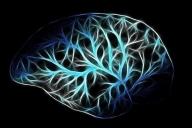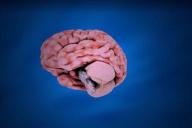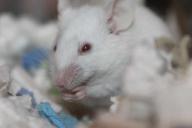science
A new study: How memory works – generative AI can help
Have you ever wondered how a complicated mechanism of human memory works? Scientists have – so they've used a special generative AI tool to imitate human memory and research the patterns.
Kate Yakimchuk research memory forming human brain technologies Psychology 27 January 2024A new discovery: Snail protein – brain injury healing can be easier
Scientists discovered more about how the human brain responds to injuries. They found a vital protein called Snail that helps coordinate the response of brain cells after an injury to the central nervous system.
Kate Yakimchuk research brain damage protein health facts Psychology 22 January 2024A new study: Memory transfers are real!
They discovered that the brain's memory areas actually store information like a photographic negative, which is the opposite of what we see. This means that when we look at something, the parts of our brain that process what we see become active, while the memory areas become less active.
Kate Yakimchuk research memory forming brain activity neurons Psychology 21 January 2024A new study: Brain communication – it's tied to proteins
Scientists discovered that a protein called phosphorylated -synuclein, which is associated with diseases like Parkinson's and Lewy body dementia, also has a role in how the brain communicates normally. When a phosphate ion is added to -synuclein, it changes the way the protein looks and behaves.
Kate Yakimchuk research brain activity brain wires health Psychology 21 January 2024A new discovery: New chance to hear – how science can help people with hearing loss
Researchers at MIT have discovered that computer models mimicking the human auditory system, particularly those that are based on machine learning, are making strides in designing enhanced hearing aids, cochlear implants, and even brain-machine interfaces. This discovery can completely change the life of people with hearing problems.
Kate Yakimchuk research hearing loss artificial intelligence health Psychology 19 January 2024A new discovery: Infertility treatment – how brain cells affect reproductive hormones
Scientists in Japan discovered that a special kind of brain cell, called kisspeptin neurons, has an important job in controlling hormones related to female reproduction, like making eggs and releasing them. These neurons are crucial for processes like the development of egg follicles and ovulation.
Kate Yakimchuk research infertility brain cells health facts Psychology 18 January 2024A new discovery: Organiods – a new method to research human brain
The team of scientists has developed a new model of the human brain called organoids. These organoids can generate the major cell types found in the cerebellum, which is important for movement, cognition, and emotion.
Kate Yakimchuk research brain activity organiods human brain Psychology 18 January 2024Nutritionist's insights: Caffeine – how it actually helps fight sleepiness
If you're a keen coffee lover, then you probably can't actually wake up without a cup or two in the morning. Caffeine is actually amazing and quite effective, but it clearly doesn't work the way that most people assume it does.
Kate Yakimchuk caffeine nutrition facts coffee brewing effects Cooking 16 January 2024Know more about your pet: How lab mice are different from regular ones
Lots of people are afraid of mice, but not all of them are just pests – some are extremely useful for scientists. Lab mice do a vital job, being experimented on, so they can't be just regular mice – they have to stay perfect for experiments.
Kate Yakimchuk lab mice rodent animal facts nature Animals 16 January 2024A new discovery: Love is blind – and now we know why
You've probably heard that love is blind, or that people who are in love can sometimes do silly things – but why? A team of specialists decided to discover more about this topic, and they seem to find at least one of the possible answers to that.
Kate Yakimchuk research in love brain activity hormones Psychology 15 January 2024A new discovery: Bigger brain spaces – can be autism
Scientists discovered that babies with bigger spaces around blood vessels in their brains, known as perivascular spaces, are more likely to develop autism. These babies also tend to have sleep issues as they grow older.
Kate Yakimchuk research brain development autism mental health Psychology 15 January 2024A new discovery: Hearing loss is dangerous – it might be associated with dementia
When people have trouble hearing, they have to work harder to listen, which can affect how their brain functions. A big study with information from more than 573,000 people discovered a link between hearing loss and the development of dementia.
Kate Yakimchuk research hearing loss dementia health Psychology 14 January 2024A new discovery: The science behind surprise – how it works
Children are easily surprised, but adults are harder to surprise because of how their brains develop. Recognizing surprises is an important skill, as new things can sometimes be dangerous.
Kate Yakimchuk research surprise brain development human brain Psychology 10 January 2024A new study: Hypnotizability – how scientists can change it in you
Hypnotizability, which refers to how easily someone can be hypnotized, is a stable trait that doesn't change much throughout adulthood. However, scientists have discovered a way to temporarily increase hypnotizability using electrical stimulation of a specific area in the brain.
Kate Yakimchuk research hypnosis self-consciousness brain activity Psychology 9 January 2024A new study: Stopping the disease spread – helping the nature
Scientists have come up with a new way to figure out how diseases spread in wild animals and how many samples are needed to detect them. Wildlife organizations often don't have enough money and staff to collect a sufficient number of samples to accurately understand how common diseases are in animals.
Kate Yakimchuk nature research wild nature diseases Animals 4 January 2024Psychologist's insights: Deja vu – learn more about it
Many people experience deja vu in their lives, or at least think that they experience it. This effect, which makes you feel like you've already seen some new things before, can be quite amazing.
Kate Yakimchuk deja vu brain activity facts effects Psychology 1 January 2024How the measles spread: A new study
Measles researchers used genetic sequencing tools to study how the measles virus mutated and spread in the brain of a person who died from a rare and deadly brain disease. This disease is a complication of the measles virus and may become more common as measles reemerges among unvaccinated individuals.
Kate Yakimchuk research measles health facts illness spread Psychology 27 December 2023A new study: Human brain wonder – parallel processes explained
From all animals, humans tend to have the most complicated and amazing brain, which is still understudied. To know more about it, scientists regularly test its amazing abilities, including its multitasking.
Kate Yakimchuk research brain activity human neurons Psychology 27 December 2023A new study: Secrets of brain development – how does it work?
Human brains are amazing in terms of their functionality, but how do they develop? New research suggests that the human brain continues to develop after birth for a longer time than previously thought.
Kate Yakimchuk research brain development cognitive skills intelligence Psychology 26 December 2023A new study: How AI memory works – it's quite similar to human brains
Scientists have found a surprising resemblance between how artificial intelligence (AI) models and the human brain's hippocampus process memory. This discovery provides fresh insights into how AI systems store memories.
Kate Yakimchuk research artificial intelligence memory human brain Psychology 26 December 2023


















